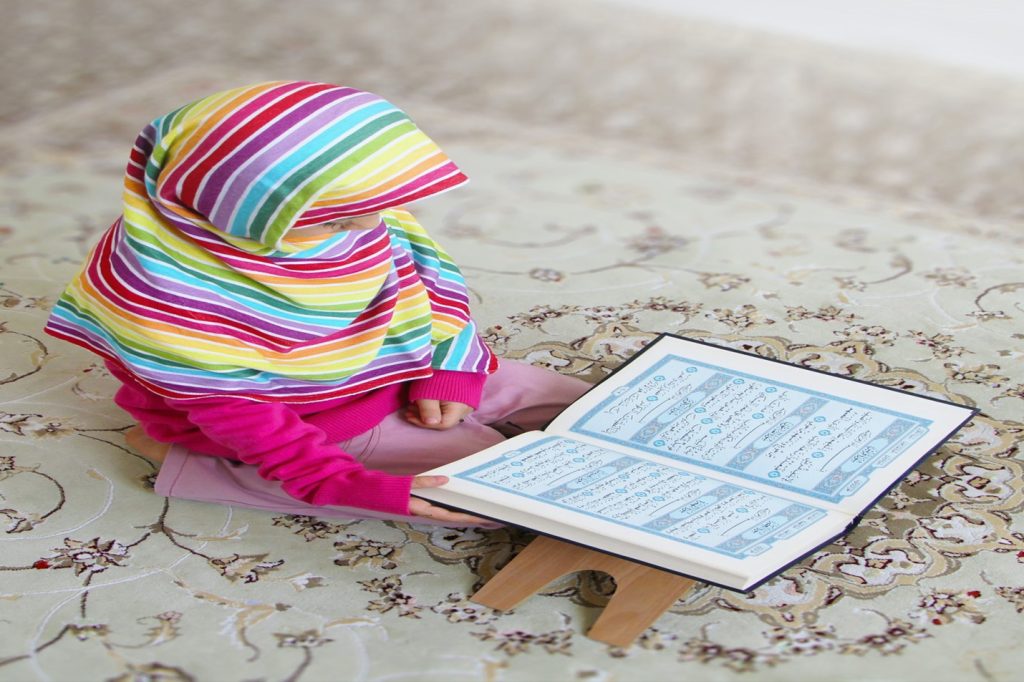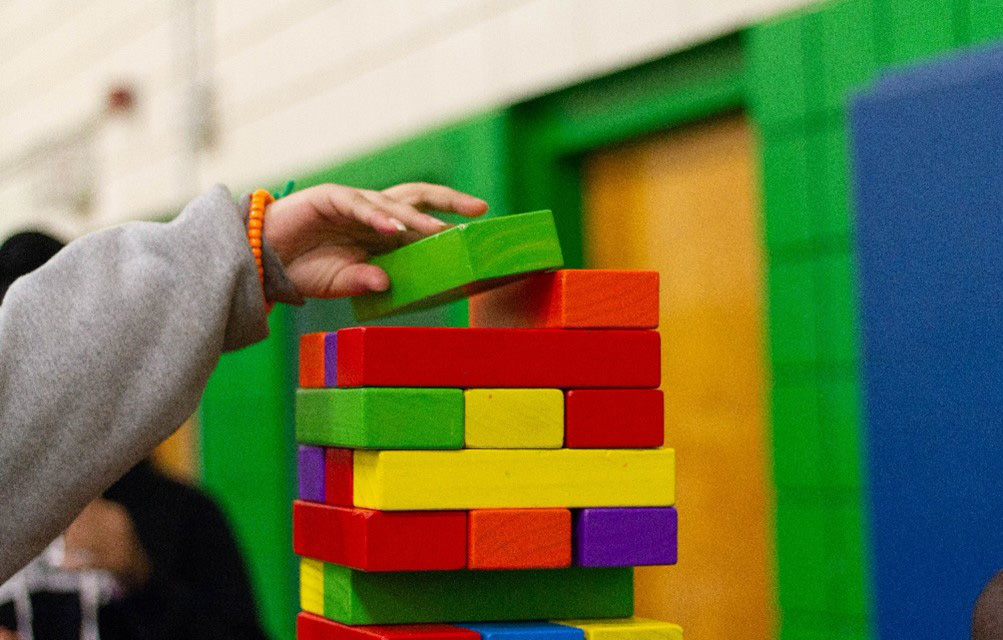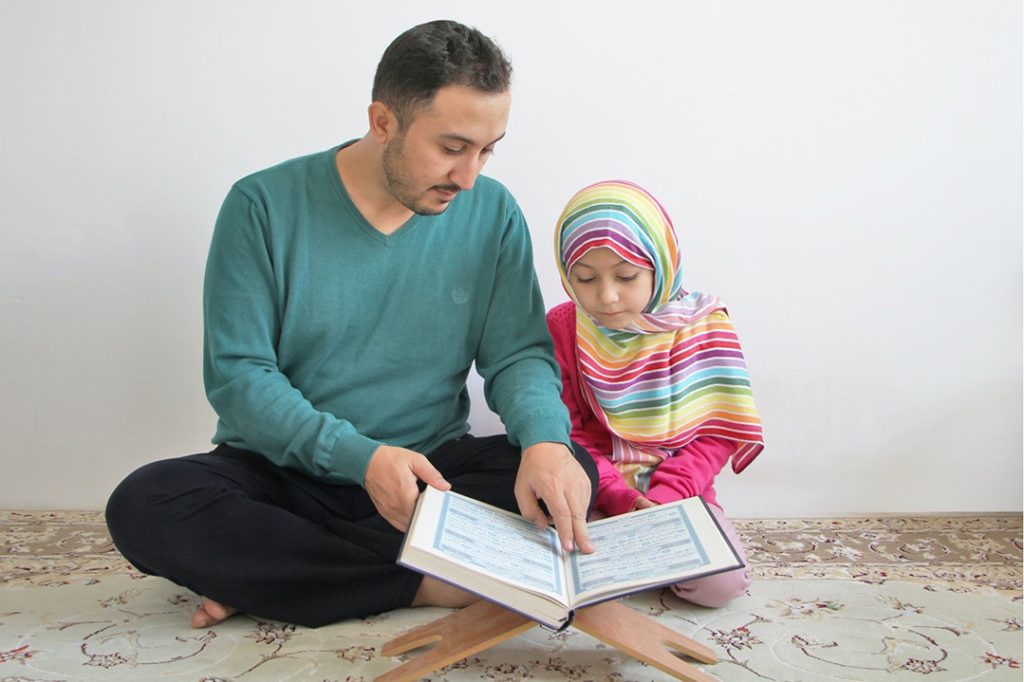As parents, we want our children to grow up with a strong connection to Allah and His word. We want them to love the Quran and prayer, and to benefit from their guidance and wisdom. But how can we teach them these essential aspects of Islam in a way that is fun, engaging, and effective? Here are some ways that can help you and your children enjoy learning about the Quran and Namaz together.
- Make it meaningful
One of the best ways to teach your children about the Quran and Namaz is to make them understand what they are saying and doing. Explain to them the meanings of the verses they are reciting, the actions they are performing, and the benefits they are gaining. Use stories, examples, and activities that relate to their lives and interests. For example, you can tell them about how Prophet Ibrahim (peace be upon him) built the Ka’ba that we face when we pray namaz, or how Prophet Yunus (peace be upon him) recited a beautiful dua when he was in the belly of the whale.

- Make it fun
Children learn best when they are having fun. You can use games, songs, crafts, and other creative methods to make learning about the Quran and prayer enjoyable for them. For example, you can play a memory game with the names of the five daily namaz, or sing a Nasheed about the different positions of namaz. You can also make a poster with the times of namaz for your city, or a bookmark with a dua that they can use when they open or close the Quran.

- Make it consistent
Children need consistency and routine to develop good habits. You can help your children establish a regular practice of reading the Quran and praying namaz by setting a specific time and place for them every day. You can also reward them for their efforts and achievements, such as giving them stickers, certificates, or gifts when they memorize a surah or pray namaz on time. You can also join them in their learning and practice, so that they can see you as a role model and a partner. - Make it interactive
Children love to interact with others and learn from them. You can involve your children in learning about the Quran and namaz by asking them questions, listening to their opinions, and encouraging their curiosity. You can also use online resources, such as videos, apps, and websites that teach the Quran and namaz in an interactive way. For example, you can watch a video that shows how to make wudu, or use an app that helps you learn tajweed. - Make it personal
Children need to feel a personal connection to the Quran and namaz, so that they can appreciate their value and relevance. You can help your children develop this connection by making dua for them, with them, and alongside them. You can also share with them your own experiences and feelings about the Quran and namaz, such as how they comfort you, inspire you, or challenge you. You can also ask them to share their own thoughts and feelings with you, so that you can understand their needs and interests better. - Use stories and illustrations
The Quran contains many stories of prophets, nations and events that can capture the attention and imagination of children. By using stories and illustrations, we can help children relate to the Quran and learn from its lessons. We can also use stories and illustrations to explain the main themes and messages of the Quran, such as monotheism, justice, mercy and ethics. - Use repetition and memorization
The Quran is a book of recitation and memorization. By repeating and memorizing the verses of the Quran, children can improve their pronunciation, comprehension and retention. We can use different techniques to help children memorize the Quran, such as audio recordings, flashcards, games and quizzes. We can also encourage children to recite the Quran in their daily prayers and rituals. - Use interaction and feedback
The Quran is a book of dialogue and reflection. By using interaction and feedback, we can help children engage with the Quran and develop their critical thinking and analytical skills. We can use questions and discussions to stimulate children’s curiosity and interest in the Quran. We can also use feedback to praise children’s efforts and achievements, as well as correct their mistakes and misconceptions. - Enroll children in online Quran academies
One way to strengthen our children’s connection to the Holy Quran is to enroll children in online Quran academies, where qualified online Quran tutors are available to offer a variety of courses.

One of the schools that works excellently in this field is DaralQuran academy, in DaralQuran there is a special department for children. Anyone who wants their children to learn the Quran perfectly can easily entrust their child’s education to them.
For more information, you can visit the website of DarulQuran academy:
https://lms.darulquran.co.uk/en/








